Apple, can you do for video what you did for music -- perhaps saving us all from NBComcast?

Last month's rumors about Apple talking to networks and Hollywood about TV show subscriptions got me thinking about what CEO Steve Jobs & Co. should do for making video content more accessible. I'm musing even harder today, given the pending announcement that Comcast will buy NBC Universal. The deal should have wide-ranging impact for cable and online TV content and companies that distribute it -- everyone from Hulu to Apple.
Now would be a really good time for Apple to rethink its video content strategy and make changes that will hold what I'm unaffectionately calling NBComcast at bay. Since I'm in one of my know-it-all moods, I'd like to offer a few suggestions to Apple. It's time for Apple to leverage its strengths by offering something like "Complete My Album" or "Upgrade to iTunes Plus" for movies, TV shows and music videos. Such iTunes features could change how people electronically rent or buy video content.
Microsoft's 'Black Screen of Death' denial solves the blame not the problem

Microsoft's response to the so-called "Black Screen of Death" problem is a throwback to an older and equally ineffective strategy -- what I have called "security by PR." Rather than managing the problem, Microsoft is managing the reaction. That simply is the wrong approach to quality customer service or instilling users with confidence about using Windows. With Windows 7 only in market for about six weeks and the holiday sales season just started, the company's priority should be fixing the problem rather than denying culpability.
Recap: Some Windows users are complaining of a Black Screen of Death (KSoD), where the operating system essentially fails to fully load at startup. KSoDs aren't new, but there have been recent reports suggesting an increasing number starting in mid November. Last week, British security firm Prevx claimed that November 10 Microsoft security updates caused recent KSoDs. However, in a late-day blog post yesterday, Prevx backed away from its assertion:
My Windows 7 confession (and why you should confess, too)

They say that confession is good for the soul -- or the mind. I'll make mine but insist that you read no further unless you're willing to make yours in comments. Deal?
My confession is the real reason for running Windows 7. In September, I wrote "Why I chose Windows 7 over Snow Leopard (and why you should, too)." In that post, I explained about Windows 7 being my primary operating system since January on two different Sony VAIO notebooks (I see from comments how many Betanews readers remember the Sony rootkit and just love the company for it). As I explained in that post, two primary reasons led to my picking the newer version of Windows over Mac OS X: Windows 7's fresh, new user interface and VAIO Z720 hardware features -- mainly higher-resolution display -- compared to 13-inch MacBook Pro. But neither of these reasons is why I stuck with Windows 7, even for the productivity gains realized from using the operating system over Mac OS X Snow Leopard.
Without its own 'iTablet' yet, is Apple missing the boat?

E-readers seem to be smoking hot this year. The Amazon Kindle, of course, has been leading the pack, but Sony seems to have sold more than a handful as well, and its new Sony Daily Edition e-reader may be in short supply. Meanwhile, newcomer Barnes & Noble already sold out of its new Nook e-reader, which the company just announced a month ago -- and that's only pre-orders that aren't shipping until the end of this month. Order a new Nook now, and you'll have to wait until January to get it.
Sounds a bit like Amazon's first sold-out holiday sales effort with the Kindle.
Not-so-mobile battery life: Time to force the issue
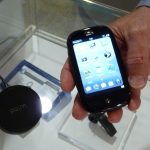
I was having a lovely conversation last week with a woman who had just upgraded to a Palm Pre. She's been an avid user of Palm products since the company's first-generation PalmPilots defined the PDA market, and was thrilled to see her beloved Palm finally get back into the game with a modern smartphone, a competitive OS, and a reasonably solid-looking business plan.
She waxed poetic about its user interface, the slickness of its multitasking, the smoothness of its application integration, and its great camera. I nodded appreciatively as she took me through her experience. I'm an old Palm PDA addict, too, and I often find myself secretly rooting for the company to overcome its demons and regain, if not market dominance, then at least something that'll allow it to survive and thrive as a smaller kind of innovative agent provocateur in a larger smartphone market.
The fallacy of Facebook privacy

Natalie Blanchard is either the most naïve Facebook user in the history of the social networking service, or an incredibly unlucky woman who just can't seem to get back on her feet. Whatever title she ends up wearing, she's quickly becoming the poster child for caution in the social media age. Unless you belong to a mysterious sect that specifically bans any form of online activity, either learn her difficult lesson or risk suffering a similar fate.
The resident of Bromont, Quebec, Canada suffers from severe depression and has been on long-term disability leave from her job at IBM for over a year-and-a-half. She had been receiving benefits from her company's insurer, Manulife, until earlier this fall when the checks suddenly stopped coming. When she called her insurance agent to find out why, she was told the company had looked up her supposedly private Facebook account, and found pictures of her posing with Chippendale dancers at a bar, attending a birthday party, and enjoying a beach vacation.
Can you come up with a better brand for AOL than 'Aol.'?

The new, much maligned "Aol." logo has upped its failworthiness. Newest buzz: A 27-year-old with no marketing expertise was the driving force behind AOL becoming Aol.; that has many people wondering what the company was thinking.
Age isn't so much concern as lack of marketing expertise. What was AOL thinking, particularly with the rebranding being so important to a company spinoff planned for early December?
AOL's decision to rebrand as Aol. takes a bad brand and makes it worse

Not since AT&T gobbled up Cingular and rebranded as at&t with that ugly Death Star-like logo has a company erred so far from sensibility. The new AOL brand, Aol., is coming soon to frighten you. AOL's attempt to be hip is anything but. Not that AOL, distributor of a billion CD coasters, was ever cool. The service may have been the biggest online community of the 1990s, but it was never hip. Nor will the lame rebranding make it so.
AOL previewed the new brand identity overnight ahead of its unveiling on December 10th, for the company's spin-off from Time Warner. By measure of big tech sites and Twitter, the rebranding is a total fail before even being officially launched.
Google's value proposition for Chrome OS: Should we feel insulted?

Let's be absolutely honest and straightforward about this right up front: Google Chrome OS is not an operating system. It's a device, like the iPhone, only that Google wants to license its specifications to OEMs. Any OEM that builds it is making a Chrome device, whose profile will be so low that it could probably never be switched out to run Windows, even XP. Probably great connectivity, but not enough solid-state storage to manage local documents or store many media files.
More than an Android device, less than a Windows device.
10 things about Microsoft's PDC 2009: The good, the bad and the ugly
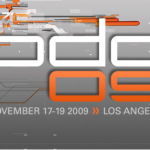
Microsoft's 2009 developer conference wrapped up yesterday in Los Angeles. Not since PDC 2003 has Microsoft talked so much and said so little. As I listened to the keynotes and have reviewed the sessions, words "series finale" repeatedly popped into my head -- like a TV show coming to its end after a long run. Good or bad for Microsoft, a computing era is ending. Perhaps PDC 2009 demarcates the transition.
PDC 2003 was memorable for demos that wooed but seemed insubstantial. Within weeks after that developer conference, I began telling my clients (I was a senior analyst for JupiterResearch then) to expect Microsoft to delay Windows Longhorn sometime in early 2004. The delay came, followed by several others, as Microsoft dumped features to get Windows Vista out the door -- late -- missing holiday 2006.
Tuning out the tablet: Time to give the endless speculation a rest
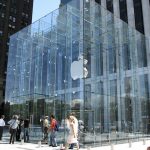
I'm sure I'm not the only one who looks at renderings of Apple's long-rumored tablet - or iTablet, or whatever name the faithful have assigned to it this week - and wishes the FedEx truck would pull up to my door with an early demo in time for the holiday season. I'm sure I'm also not the only one who's ready for the endless speculation to, well, end.
I don't think I've ever seen an unreleased product generate so much discussion without so much as a peep from the vendor of record. I realize the frenzied speculation is as frenzied as it is because we're talking about Apple, and that if this were any other company, we'd collectively yawn our response before moving on to the next big thing. This is a company that seems unique in its ability to generate so much activity around what is, for now at least, vapourware. And while I appreciate the value of healthy exchanges in advance of a major product launch, I can't shake the feeling that the never-ending iTablet fever is just a little much, and that we'd all be doing ourselves a favor by giving it a rest and waiting until Apple actually ships a working product.
Apple's house rules won't be the death of app development
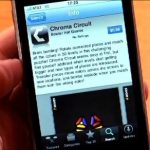
So Facebook developer Joe Hewitt tweets that he's ditching the super-popular Facebook iPhone app, and TechCrunch, clearly sensing there's more to the story here, reaches out to learn why.
"My decision to stop iPhone development has had everything to do with Apple's policies," Hewitt told TechCrunch. "I respect their right to manage their platform however they want; however, I am philosophically opposed to the existence of their review process. I am very concerned that they are setting a horrible precedent for other software platforms, and soon gatekeepers will start infesting the lives of every software developer."
After the Psystar verdict: Send in the clones

I feel a little sorry for Psystar. But only a little, because the Mac clone maker should have realized it couldn't rewrite history.
Its latest courtroom loss -- where a US District Court judge last week sided with Apple and said Psystar can no longer sell hardware based on hacked versions of Mac OS X -- will in all likelihood bring the whole concept of clones to an inglorious close. And none too soon.
After the Intel + AMD armistice: Do we really want a level playing field?

If there were a psychiatrist seated across the room from us, and we were to present to her our feelings about information technology as a force in our lives, her diagnosis would be simple and immediate: We have an obsession. Maybe having nothing to do with technology itself at all, we're obsessed with the notion of a nemesis with an unfair advantage influencing the decisions we make.
In every major arena of information technology over the past five years, the principal topic of discussion has been the need to level the playing field, to restore something called "fair competition," to ensure that the smaller player still has a chance. For the topic of PC operating systems, to this day, there's a frenzied Pavlovian response to the notion that Microsoft Windows stole its ideas from Apple Mac OS -- I moderated public, online discussions about that same topic 25 years ago. For Web applications, we're beta testing the idea of shifting the Darth Vader mask from Microsoft over to Google, the dominant player in nine out of ten of the world's queries; and we're reveling in the irony of AT&T proclaiming Google an evil empire. For smartphones, we're evaluating whether Apple fits the role of dominant player, whether that Halloween costume we used to fit on Bill Gates and that we're testing on Eric Schmidt can be swapped out with Steve Jobs.
The iTunes App Store at 100,000: Can we stop counting, already?
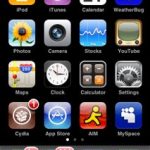
Ever since Apple launched its App Store barely 16 months ago, we've paid a lot of attention -- indeed, too much -- to the number of applications it contains. As the App Store crossed the 100,000 title barrier last week, it occurred to me that the bigger this number gets, the less it actually means.
I get that Apple has won the sheer-number sweepstakes. I appreciate that no other mobile storefront can even come close. I also understand how broad software availability (in terms of sheer numbers as well as ease of acquisition) has helped fuel the growth of the iPhone/iPod touch universe. I just think we attach way too much importance to this single figure, and it distorts our ability to understand ultimate value to end users and developers alike.
Recent Headlines
Most Commented Stories
BetaNews, your source for breaking tech news, reviews, and in-depth reporting since 1998.
© 1998-2025 BetaNews, Inc. All Rights Reserved. About Us - Privacy Policy - Cookie Policy - Sitemap.